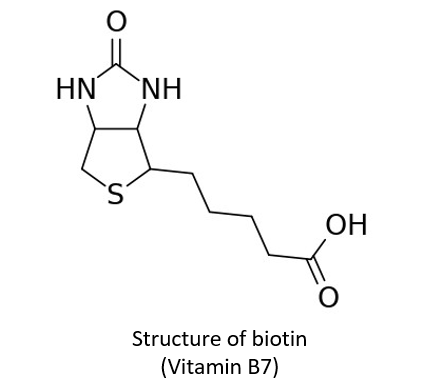Biotinylation

Biotin is a small molecule commonly used to facilitate the detection and purification of proteins. Biotin-based methods take advantage of the exceptionally strong interaction between biotin and either avidin or streptavidin, which is stable across wide pH variations, high salt concentrations, temperature extremes, and denaturants. Biotinylation can be performed chemically using various types of reactive linkers, for example NHS-sulfo-biotin reagents which randomly label free amine groups in the target protein, or biotin-PEG (Polyethylene glycol) derivatives that react with free carboxyl, amine, or sulfhydryl groups, or take advantage of click chemistry.
Alternatively, enzymatic biotinylation of a protein can be performed using a biotin ligase enzyme such as E. coli BirA, after addition of an AviTag™ to the protein of interest. The distinct advantage of enzymatic biotinylation using the AviTag™ is the control conferred on the location of the tag and the number of biotin molecules that can be appended. In addition, the reaction is highly efficient as it leads to over 90% biotinylation of the target. To learn more about enzymatic biotinylation and BirA, see our tech note.

